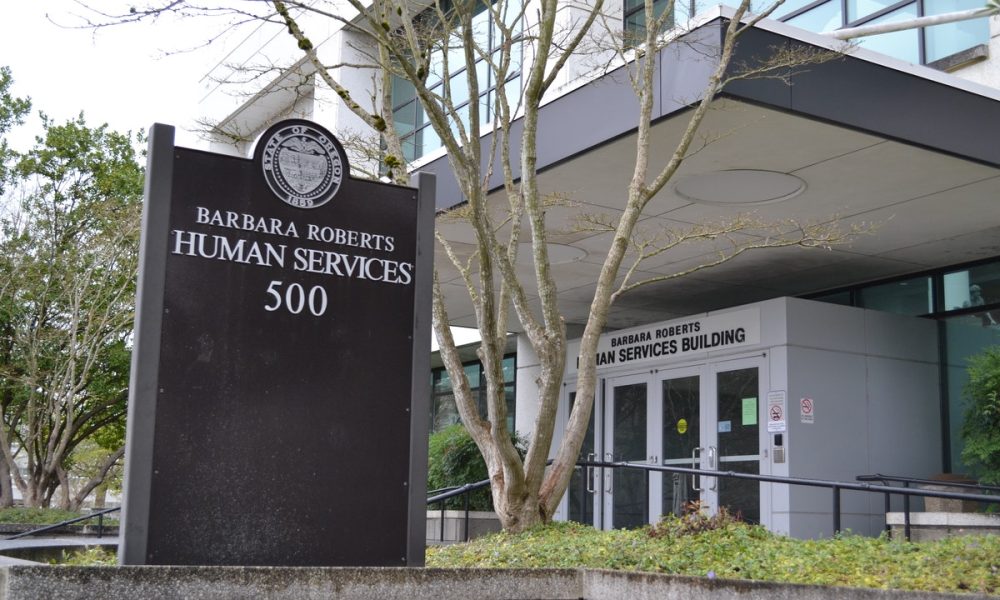
SALEM — A move by the federal government to restrict most legal immigration to those who can afford health care, housing and food on their own is sowing worry among Oregon immigrants, even those who will not be impacted by the rule, advocates say.
“We have definitely seen fear, and confusion from our clients about the public charge rule,” said Beth Englander, a public benefits attorney with the Oregon Law Center.
Last week, the Trump administration issued a rule saying that immigrants who use certain public benefits could have that counted against them if they are seeking legal status in the U.S. — a process that can take decades.
Oregon and four other states have sued the Trump administration to block the rule, which is expected to take effect Oct. 15.
“This cruel new rule punishes families for simply being immigrants,” said Oregon Attorney General Ellen Rosenblum in a statement. “The rule will hit children and families across our state who need food and medical assistance the most.”
There are many exceptions to the new rule, however. For example, the rule doesn’t apply to refugees or people seeking asylum.
But, Englander said, she keeps hearing one phrase over and over — “it will come back to haunt me.”
Even those immigrants who aren’t covered by the rule fear that it could jeopardize them in unexpected ways, Englander said.
“It’s very hard to allay people’s fears,” she said.
Currently, the U.S. Department of Homeland Security considers whether an applicant for a green card will become “primarily” dependent on the government for income.
Using programs like cash assistance or long-term institutional care is taken into account, according to the Immigrant Legal Resource Center.
But under the new rule, an array of other benefits will be considered, like public health care, nutrition programs and vouchers to help pay for housing.
A public charge is defined in the new rule as a person receiving public benefits for 12 months or more in a 3-year period.
In Oregon, the state’s health and human services agencies are publicizing which benefits are covered by the new rule, including social media posts in English and other languages, outreach to community organizations and providing talking points to the state’s call center for Oregon Health Plan members.
Jonathan Modie, a spokesman for the Oregon Health Authority, emphasized the importance of health care.
Modie described the rule as “really stigmatizing” and said it “punishes people who work hard but may not have the best income, who are trying to provide for their families and themselves.”
About 132,000 Oregon children with at least one immigrant parent have access to health care through the Oregon Health Plan, the state’s public health program for low-income people and other qualifying groups.
Medicaid recipients under 21 years old will not be affected by the new rule. Pregnant women’s use of Medicaid will also not count toward the public charge rule.
The Oregon Health Authority reported that at least about 68,000 people who are not citizens receive health care through the Oregon Health Plan.
According to the Oregon Department of Human Services, each case is different, and assessing whether someone is a public charge “looks at all a person’s circumstances” and weighs “various positive factors against any negative ones.”
“This rule is impacting people’s behavior in a context of this larger climate of fear around anything having to do with immigration,” Englander said.
Salem organizations have seen the impact of the proposed changes for about a year, ever since Trump administration officials announced they were considering means-testing applicants for green cards.
Levi Herrera-Lopez, executive director of Mano a Mano, said fears have led some families not to enroll in the Oregon Health Plan, which leaves them reliant on emergency room care.
Mano a Mano has a contract with the state to enroll people.
“They’re fully eligible for the benefits and they’re opting not to have access to preventative care,” said Herrera-Lopez.
Fewer than 20 eligible families in the past year decided against enrolling. Confusion about what the changes are and to whom they apply is rampant, Herrera-Lopez said.
The impact is magnified because many Latino families are of mixed immigration status, he said, and may include members who are U.S. citizens, green card holders, visa holders or people without legal status.
If families fear enrolling for benefits could harm someone’s immigration case “that means the whole family will go without,” he said.
Herrera-Lopez believes the rule change is motivated by a desire to “make it so people are having such a hard time to live here they just leave,” he said.
Mano a Mano is encouraging families to consult immigration attorneys about the potential impact of changes, and will still encourage people to enroll in OHP, he said.
Oregon is home to about 400,000 people born in other countries, according to 2017 Census Bureau estimates, though that count doesn’t distinguish between naturalized citizens and non-citizens.
Immigrants from the Americas make up the largest share, accounting for nearly half of foreign-born Oregonians.
About one in three are from Mexico. Another third are from Asia, with Vietnam and China as the most well represented countries.
Non-U.S. citizens are far less likely to have health insurance than their U.S. citizen counterparts, whether born here or naturalized, Census data shows.
About one in four families with a Latino head of household reported receiving food stamps in the 2017 Census Bureau survey.
Statewide, about 15% of all Oregon households reported receiving food stamps.
Reporter Claire Withycombe: [email protected] or 971-304-4148.
Reporter Rachel Alexander: [email protected] or 503-575-1241.









